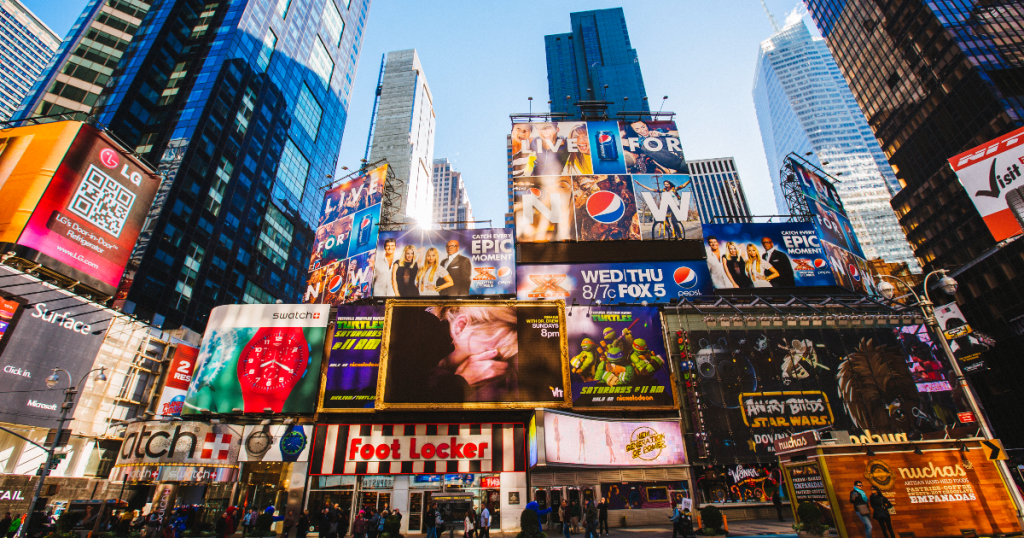Emerging trends in hospitality for 2024 and beyond
29th April, 2024

In this article
Dr Dimitrios Diamantis, Executive Academic Dean at Les Roches, draws upon two decades of industry-focused research experience to capture the key hospitality trends coming in 2024.
Tourism and hospitality is one of the world’s most important industries – worth around $9.5 trillion in 2023 – and most dynamic, making it a fascinating subject for an academic like myself to pursue.
At Les Roches, it’s our duty to keep our students up to speed with the latest trends across the hospitality industry. In this article I want to touch on some of the topics and trends that are generating the most debate and comment in our classes.
A summary of 2023’s key trends
Before we look forward, it is always useful to look back, as from that perspective we can see the origins of several important current trends in hospitality for this year.
Making the hotel industry a more attractive career choice
Probably the biggest talking point for the industry in 2023 concerned the ongoing ‘war for talent’, and in particular how to attract and retain young people. With new generations seeking a better work/life balance, as well as more defined career paths, hotels need to raise their game in terms of offering fully-rounded packages that encompass more than just salary and bonuses.
This is especially true at what we might term ‘long haul’ destinations, where operators have had to think more deeply about the expatriate packages they provide, covering areas such as accommodation alongside other more intangible benefits.
Hotel company HR directors I speak to are now seeking to come up with the right mixture of tangible and intangible benefits, with the latter including components that enhance the quality of the employee’s life, such as wellness centers, healthier meals in the staff catering areas, and so on. The companies that care best for their employees are the ones that will win the ‘war for talent’.
The battle of the brands
The second big trend to look back on was the hotel industry becoming even more brand sensitive, with a multitude of new brands being developed to cater to specific needs and desires of modern travelers.
From the consumer’s perspective this is great news, as more choice is always welcome, and it increases the chances of finding that ideally-matched concept. From the industry perspective, it adds to what is already a very competitive market, putting even more emphasis on delivering exemplary, highly personalized guest experiences to maintain customer loyalty.
We can’t ignore the global context
The third and final 2023 trend I want to touch upon is how the shifting economic and geopolitical sands impacted the business of hospitality. Conflicts and political turmoil are, in themselves, beyond the control of hoteliers. But given the truly global nature of hospitality it’s an industry that cannot escape the commercial implications of these shocks.
The turmoil in eastern Europe and the Middle East has made the industry a little more cautious in places, leading some to focus on developing domestic or well-established overseas markets rather than taking chances on more ambitious ventures.
On a positive note, the growing economic power of countries like India and Saudi Arabia is increasingly being invested in tourism and hospitality, which can only be good for the overall health of the industry. Saudi Arabia in particular is making a major play on tourism through its Vision 2030 initiative – and for me it was a genuine statement of intent to see the Saudi Tourism Authority sign an agreement last year to become the global partner of the World Travel Market trade shows.

The emerging hospitality trends for 2024
If that was 2023, what trends can we expect to unfold as we progress through 2024? Since we were a couple of months into the year as I was writing this article, the picture is already becoming clearer.
Sustainability is becoming ‘business as usual’
Any look ahead to 2024 for the industry must include the topic of sustainability in hospitality and the need to build sustainable practices into day-to-day operations.
There’s more concern than ever about environmental matters among the global population, and especially in the wealthier, ‘western’ economies which are home to vast numbers of potential guests for the hotel industry.
For hospitality companies, this is creating pressure from two directions. On one hand, research reveals that guests are increasingly looking for evidence that the hotel is a good corporate citizen; on the other, governments and regulators are challenging operators to demonstrate their ESG (Environment, Social and Governance) credentials through more regular and detailed reporting.
In this regard, Singapore can be seen to have taken a lead in proposing mandatory climate reporting. In the EU, meanwhile, the Corporate Sustainability Reporting Directive (CSRD) means large companies will have to report on their ESG practices from 2025 onwards, beginning with the financial year 2024. This includes EU-based subsidiaries of businesses that are not headquartered in the bloc, further widening the net.
I believe the industry has already made good progress in this area, particularly in areas such as making better use of resources like power, water, etc. In addition, hotels have always done a great job of providing local employment, but now we are also seeing properties become more integrated in their communities, respecting and showcasing local cultures, investing in environmental protection schemes, etc.
More personalized service and experiences
I already mentioned the rapid expansion in the number of hotel brands and concepts on offer; and this is part of a wider trend towards a more personalized experiences that focusses on individual preferences. Digital transformation and leveraging the data it creates is clearly an important part of this – the more we know about our guests, the more personalized our service can become.
From an employee perspective, the drive now is towards specialization. To be a decision-maker in hospitality today you effectively need to wear two hats – as an all-rounder with a good knowledge of the operational or financial elements; but also as a specialist in your chosen area, be it food & beverage (F&B), resort management, golf courses, cruise lines, whatever.
Hospitality needs people with in-depth knowledge of these specialized areas in order to deliver a brand offering that is expanding beyond pure hotel accommodation. For example, Four Seasons is now putting its name to private flying and private yacht charters, while The Hong Kong & Shanghai Hotels Limited operates the world famous Peninsula Hotels but also manages golf clubs and private members’ clubs, as well as investing in private and commercial real estate.
The continuing convergence of luxury and hospitality
Whether it’s under their own name, such as Bulgari Hotels, or in a more subtle fashion, such as Chopard’s new Parisian boutique hotel 1 Place Vendôme, luxury goods brands have ventured into hospitality in an increasingly enthusiastic fashion.
As so often, LVMH Moët Hennessy Louis Vuitton (LVMH) is at the vanguard, thanks to the creation of a dedicated hospitality arm that encompasses luxury hotel brands Belmond and Cheval Blanc. They recognize the crossover between luxury customers and luxury travelers and, from a talent management point of view, they know that the power of their brands – and the lure of the luxury sector as a whole – makes them a magnet for the brightest and best potential recruits.
Health and wellness tourism explores new frontiers
Forecast to become a trillion dollar market in 2024, global wellness tourism is a market sector that can truly be said to have come of age.
For me, one of the lasting changes from the Covid pandemic is that many of us have become more health-conscious, aided by a plethora of wellness apps and other technologies that have given us unprecedented insights into the condition of our bodies.
The major wellness-focused hospitality brands have not been slow to respond, with significant expansions now underway by Six Senses, Banyan Tree, and others. Health and wellness is also featuring strongly in the exciting new tourism developments in Saudi Arabia, including the Amaala development that will be home to the first full scale health and longevity destination by the high end Swiss operator, Clinique la Prairie.
For highly seasonal destinations, such as alpine ski resorts, the growth of wellness tourism can be a real boon – and this is especially true for the more low-lying resorts for whom the ‘snow season’ has shrunk due to our changing climate. Wellness tourism is an all year round affair, and I think we will see more resorts making a play to attract operators to set up in their locale.
Innovations in technology bring new opportunities in sustainability and guest service
The hotel sector has not always been a place where new ideas and new technologies thrive – but that is changing.
At Les Roches, we’re doing our bit by embedding innovation into all our academic programs; plus we have our own dedicated innovation center in the form of Spark.
Given the desire of many tourists to head for sunnier climes when on vacation, one innovation that could be adopted by hotel operators in those regions is the brainchild of Cool Roof France. This Brittany-based company has developed a special paint that uses the waste from oysters, more especially the calcium from the oyster shell. A roof covered with this paint is able to reflect 90% of the sun’s rays away from buildings, reducing cooling costs and carbon footprints in a sustainable and cost-effective manner.
Another innovator worth noting offers eco-friendly versions of consumable items which are bought just as regularly by hotel operators as they are by households across the world. Founded in 2020 and based in the United States, EcoSoul makes tableware, kitchen utensils, tissues and drinking straws out of sustainable materials like sugar cane, palm leaf, rice husk, wheat straw, and bamboo. Currently focused on b2c sales, it will be interesting to see if companies like EcoSoul can crack the corporate market, including hospitality.
Within the hotel business itself, I see a continuing rollout of personalization through technology, with innovations like in-room AI-powered chatbots becoming a more common form of guest interaction. Improved, data driven decision making will allow hotels to offer more focused services based on personalization and wellbeing.
It’s a people thing, naturally
Ultimately, though, the delivery of memorable hospitality experiences comes down to the human touch, and that means solving the talent challenge I referred to at the beginning of this piece. From the big chains to the individual operators, hoteliers need to fight like never before to ensure that service-oriented, interculturally fluent young talents choose hospitality ahead of other competing career paths.

The biggest challenges facing hospitality in 2024
Continuing on this theme of keeping talented employees loyal to the brand and the business, for the younger generations, this will involve more than just salary and bonuses, as these workers tend to value ‘softer’ elements around quality of life just as highly. Work/life balance is a perennial challenge in a 24/7 industry like hospitality, and it’s something the industry must address if it wants to remain an attractive environment in which to build a career.
That said, I don’t think you can look beyond geopolitics as the biggest challenge facing hoteliers in the coming year. No industry likes uncertainty, and with conflicts raging in several places and an unprecedented array of national elections throughout this year, uncertainty is the order of the day.
In response, the hospitality education sector needs to build crisis and change management into everything we teach. Hospitality is an incredibly resilient industry which has bounced back from all kinds of shocks in recent decades – from September 11 to Covid – but at an individual level we need to ensure that the industry’s future leaders have the agility and resilience to not become overwhelmed during times of crisis.
It’s not all bad news by any means, though. Human nature is such that in challenging times we naturally seek an escape route, and for many of us that means taking a holiday to ‘get away from it all’. In particular, I see the trend towards staycations being maintained this year, particularly in markets like the United States.
Last but not least among the challenges, the industry is going to have to respond to the ESG (Environment, Social & Governance) challenge. Customers – especially on the corporate side – are increasingly shifting their business to hoteliers who fit their own ESG philosophies, while sustainability and ESG reporting must include actions towards climate change at the local, regional and global level.
Serious about your hospitality management career?
Insights on the latest industry trends, career development advice, and program releases from one of the world’s leading hospitality schools.
We respect your privacy. Unsubscribe at any time.
How to spot trends in hospitality
As a trend spotter for more than two decades, the biggest change I have seen is the growing reliance on data across our industry. When we take our MBA cohorts to visit hospitality corporate offices, we find everyone talking about how data-driven their roles have become. Today, even in areas like marketing, data leads the creative process, and there’s no escaping this.
If you want to delve into market intelligence yourself, there are lots of organizations to tap into, including HotStats, Skift and STR to name a few. There’s also a wealth of academic research to call upon, including from myself and my colleagues at Les Roches.
The deeper you dive into the world of tourism and hospitality, the more fascinating it becomes. Welcome aboard the most global and dynamic of industries!



